Legislative Overview ~ April 21, 2025

Did the early bird get the worms? The Legislature held split floor sessions today, meeting at 8 a.m. for an hour before recessing and reconvening at 12:30 p.m. During these sessions, numerous Conference Committee Reports were adopted and several bills were passed.
Here is a summary of what took place during today’s floor sessions:
16 Bills Passed in the Senate and awaiting Governor’s Signature: HB1006, HB1216, HB1279, HB1440, HB1459, HB1460, SB2070, SB2112, SB2133, SB2160, SB2180, SB2276, SB2282, SB2330, SB2374, & SB2380 + SCR4007. There were none failed.
26 Bills Passed in the House and awaiting Governor’s Signature: HB1119, HB1165, HB1193, HB1216, HB1225, HB1307, HB1329, HB1332, HB1425, HB1442, HB1482, HB1540, HB1566, HB1580, HB1582, HB1584, HB1600, HB1612, HB1613, SB2002, SB2015, SB2029, SB2200, SB2225, SB2342, & SB2397. There were none failed.
The Bills we are tracking regarding the business world include:
SB2225: https://ndlegis.gov/assembly/69-2025/regular/documents/25-1186-04000.pdf
This Bill proposes a $50 million appropriation to the North Dakota Department of Commerce for a housing program aimed at supporting affordable housing infrastructure. The funds will be allocated based on community size, with matching contributions required from local governments, developers, and private sources. The bill includes a reporting requirement to track program progress and an emergency clause for immediate implementation. It affects local governments, developers, and residents needing affordable housing. It could benefit business owners by increasing the availability of affordable housing, potentially attracting more workers to the area and supporting workforce stability. Developers and construction-related businesses may see increased demand for their services due to the infrastructure investments. However, business owners could face higher local taxes or fees if matching funds are required from local sources. The bill aims to stimulate economic growth by addressing housing shortages, which can indirectly support businesses in affected communities.
SB2282: https://ndlegis.gov/assembly/69-2025/regular/documents/25-1035-05000.pdf
This Bill proposes an income tax credit for employers who contribute to their employees’ child care costs. Qualified employers can receive a credit equal to 30% of their contributions, up to $500 per employee, for taxable years starting after December 31, 2024. The bill requires contributions to be made to licensed child care providers and mandates equal opportunities for all employees with child care expenses. This could encourage businesses to support employees with child care needs.
SB2342: https://ndlegis.gov/assembly/69-2025/regular/documents/25-1308-03000.pdf
This Bill amends the Agriculture Diversification and Development Fund to establish a new grant program supporting the construction or expansion of value-added milk processing facilities in North Dakota. The program offers grants of up to $5 million or 5% of total construction costs for facilities capable of processing at least 3 million pounds of milk annually. Eligible expenses include infrastructure, site acquisition, and capital improvements such as utilities, roads, and rail lines. Grants are disbursed upon the facility reaching full processing capacity. The bill also authorizes a line of credit from the Bank of North Dakota to support the fund.
This legislation aims to bolster North Dakota’s dairy industry by incentivizing the development of large-scale milk processing facilities, potentially creating new markets for local dairy farmers and stimulating rural economic growth. It may benefit construction firms, utility providers, and equipment suppliers involved in such projects.
HB1329: https://ndlegis.gov/assembly/69-2025/regular/documents/25-1112-04000.pdf
This Bill introduces a government spending database that will include detailed expenditure data from state, local, school districts, and higher education institutions. It requires the State Treasurer to maintain this database, which will be accessible online and updated monthly. The bill also mandates training for school officials on management practices. An appropriation of $350,000 is requested for this initiative. The bill is scheduled to take effect on July 1, 2026.
This bill does not directly address property taxes. However, by creating a government spending database, it could lead to more transparency in public spending. If local governments or school districts face increased scrutiny over financial practices, it might affect how funds are allocated, potentially influencing property tax rates in the future. The bill could encourage more efficient spending, but its exact impact on property taxes would depend on how funds are managed across different entities.
HB1332: https://ndlegis.gov/assembly/69-2025/regular/documents/25-0541-07000.pdf
This Bill creates a new incentive program to support large-scale value-added agriculture facilities. It offers grants for infrastructure and development costs for projects that invest at least $350 million and contribute at least $20 million in economic value. The bill also includes a $30 million transfer from the Strategic Investment and Improvements Fund to support this initiative. Aimed at boosting local economies, it impacts agricultural businesses and communities involved in food processing, commodity production, and agricultural manufacturing.
Non-agricultural taxpayers may be indirectly impacted by this bill through the $30 million transfer from the state’s Strategic Investment and Improvements Fund. This fund comes from taxpayer dollars and will be used to support grants for large-scale agricultural projects. While non-agricultural businesses or individuals aren’t directly receiving the grants, they could benefit from the job creation and economic growth these projects aim to stimulate, particularly in rural areas where such developments may occur.
By allocating public funds to support agricultural development, this bill may be seen as an expansion of government involvement in the economy. That could be viewed as as directing taxpayer money toward specific industries. However, supporters might argue that it fosters economic growth and job creation, which could enhance overall opportunities for citizens. The impact on individuals depends on one’s perspective regarding government intervention in business development.
HB1440: https://ndlegis.gov/assembly/69-2025/regular/documents/25-0298-04000.pdf
This Bill proposes changes to regulations governing cigar lounges in North Dakota. The bill amends requirements for cigar lounge certification, specifying criteria such as ventilation systems, humidor presence, and revenue thresholds. It clarifies that cigar lounges must generate at least 15% of their gross income from cigar and pipe tobacco sales to maintain certification. The bill streamlines reporting requirements to the tax commissioner while maintaining confidentiality provisions. These changes could impact businesses operating cigar lounges by adjusting compliance standards and reporting obligations.
HB1460: https://ndlegis.gov/assembly/69-2025/regular/documents/25-0620-05000.pdf
This Bill introduces new requirements for substitute caregivers and respite care providers in adult foster homes in North Dakota. It sets limits on the number of days these caregivers can provide services within specific licensing periods. The bill also mandates a legislative study to examine the challenges in licensing adult foster homes, barriers to services for older adults and individuals with disabilities, and potential regulatory or funding issues. The primary stakeholders affected by this bill include adult foster care providers, who would gain greater flexibility in staffing and safety practices; private-pay residents and their families, who could benefit from improved care and the regulated use of monitoring devices; and substitute caregivers or respite care providers, who may see clearer guidelines and expanded job opportunities. The North Dakota Department of Health and Human Services would be responsible for adjusting oversight and licensing procedures to implement these changes, while legislative management and policymakers would lead a study to evaluate broader challenges in adult foster home licensing and recommend future improvements.
~ The House definitely made the most significant progress today, deliberating and passing 26 bills, with the split floor sessions playing a key role in moving the agenda forward. While the schedule may see adjustments throughout the week, tomorrow’s floor sessions are expected to follow their regular times after the midday break.
DID YOU KNOW? One of the most unusual pieces of legislation this session was SCR 4004, which is a concurrent resolution declaring April 21, 2025, through April 28, 2025, as “North Dakota Dark Sky Week,” and urging the residents of North Dakota to partake in this event to observe, ponder, and support the natural dark sky resources of this state. It encourages residents, businesses, and government entities to reduce nonessential lighting to protect migratory birds and mitigate light pollution. The resolution highlights that North Dakota lies along major migratory routes, with up to 35 million birds flying over the state on peak nights. Excessive lighting can disorient these birds, leading to collisions and fatalities. Reducing light pollution also offers benefits such as energy savings, improved human health by preserving circadian rhythms, and protection for crops and pollinators sensitive to artificial light. Thought it failed, I’m curious to know how you as business owners and taxpayers feel about this type of bill. Leave us your thoughts below.
Jan Wangler, Executive Director 

